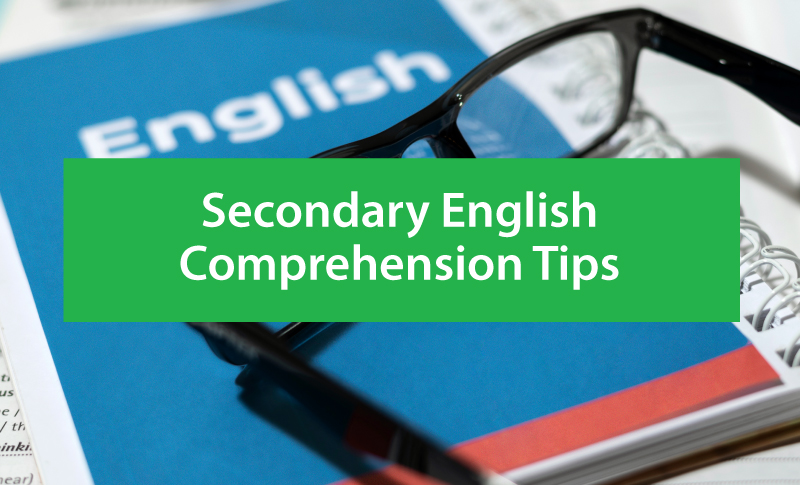English comprehension is a fundamental skill that extends far beyond the classroom. It helps students interpret information, express ideas clearly, and think critically. For secondary students, mastering comprehension is crucial not only to excel in examinations but also to develop lifelong analytical and communication skills. Whether you’re preparing for O-Level English or simply aiming to strengthen your reading ability, these secondary English comprehension tips will guide you towards becoming a confident and effective reader.
1. Understand the Purpose of Comprehension
Many students treat comprehension as a simple reading exercise, but it’s much more than that. Comprehension tests your ability to understand the writer’s message, tone, and purpose. It assesses how well you can identify key details, infer meanings, and evaluate arguments.
Before you even begin answering questions, take a moment to consider what the passage is about. Ask yourself:
- Who is the author, and what is their intention?
- Is the passage informative, persuasive, descriptive, or narrative?
- What emotions or attitudes does the author convey?
Having this awareness allows you to approach the passage strategically, which can make a big difference in your performance.
2. Read the Passage Actively
Active reading means engaging with the text rather than just scanning it. As you read, underline important details, circle unfamiliar words, and jot brief notes in the margins. This helps you stay focused and makes it easier to locate key points later.
You can also divide the passage into sections and summarize each in your own words. This strengthens understanding and retention. Remember, comprehension is not about speed it’s about clarity.
3. Expand Your Vocabulary
A wide vocabulary is one of the strongest assets in comprehension. Many students lose marks because they misunderstand certain words or phrases.
To improve vocabulary:
- Read regularly from a variety of sources—newspapers, literature, and academic articles.
- Keep a vocabulary notebook and write down unfamiliar words along with their meanings and examples.
- Practice using new words in your own writing and speech.
Over time, this habit will make you more confident when encountering complex or technical terms in comprehension passages.
4. Learn to Infer Meaning
Inference questions are common in secondary English comprehension exams. These questions don’t ask for direct answers from the text but require you to interpret what the author implies.
For example, if a character “stared at the floor in silence,” it may imply sadness, guilt, or hesitation. Learn to “read between the lines” by connecting clues in the passage with your understanding of human behavior and context.
A useful tip: when asked about what the writer “suggests” or “implies,” avoid copying sentences directly. Instead, explain the underlying meaning in your own words.
5. Identify the Main Idea of Each Paragraph
Every paragraph has a central idea supported by examples or evidence. Being able to identify it quickly will help you grasp the overall flow of the passage.
Ask yourself:
- What point is the writer trying to make here?
- How does this paragraph connect to the previous one?
- Is it introducing a new idea, supporting an argument, or concluding a point?
Understanding structure not only improves comprehension but also helps you answer summary and organization-based questions effectively.
6. Pay Attention to Tone and Style
The tone of a passage reveals the writer’s attitude whether it’s serious, humorous, critical, or emotional. Recognizing tone helps you interpret meaning more accurately.
For example:
- A sarcastic tone may mean the writer is saying the opposite of what they truly believe.
- A formal tone suggests objectivity and professionalism.
- A personal or emotional tone indicates the writer’s involvement or opinion.
When answering questions about tone, support your response with evidence from the text specific words or phrases that show how the author feels.
7. Manage Your Time Wisely
Time management is essential during comprehension exams. Students often spend too long reading the passage and rush through the questions.
Here’s a useful breakdown:
- Spend the first 5–7 minutes reading the passage carefully.
- Use 15–20 minutes answering the questions in order.
- Leave the final few minutes to review your answers.
If you encounter a tough question, skip it and return later. Staying calm and organized ensures you don’t lose marks unnecessarily.
8. Practice Paraphrasing and Summarising
Examiners often ask students to rephrase sentences or summarize parts of the passage. Paraphrasing shows that you truly understand the meaning rather than just copying.
To paraphrase effectively:
- Replace words with suitable synonyms.
- Change sentence structures without altering the meaning.
- Keep your summary concise, focusing on the main points only.
Regular summarizing practice will improve your ability to write clearly and precisely an essential skill for both comprehension and composition.
9. Learn from Model Answers
Reviewing model answers is a powerful way to understand what examiners expect. Compare your answers with high-scoring ones to identify gaps in your explanations, vocabulary, and structure. Notice how model answers are direct, well-organized, and supported by textual evidence.
However, don’t memorize them blindly. Use them as learning tools to refine your techniques and improve clarity in your own responses.
10. Practice Regularly
Like any skill, comprehension improves with consistent practice. Read a variety of passages—fiction, non-fiction, news reports, and opinion pieces. Over time, you’ll notice patterns in question types and learn to adapt your strategies accordingly.
Websites, assessment books, and reading clubs can be valuable resources. The more you expose yourself to diverse writing styles, the stronger your comprehension ability becomes.
Final Thoughts
Mastering English comprehension is a journey that requires patience, curiosity, and consistent effort. By applying these secondary English comprehension tips, students can enhance their reading, critical thinking, and interpretation skills, all essential for academic success and lifelong learning.
Remember, comprehension is not just about answering exam questions, it’s about developing the ability to understand and appreciate language in all its richness. With regular reading and thoughtful analysis, every student can become a confident and capable reader.
